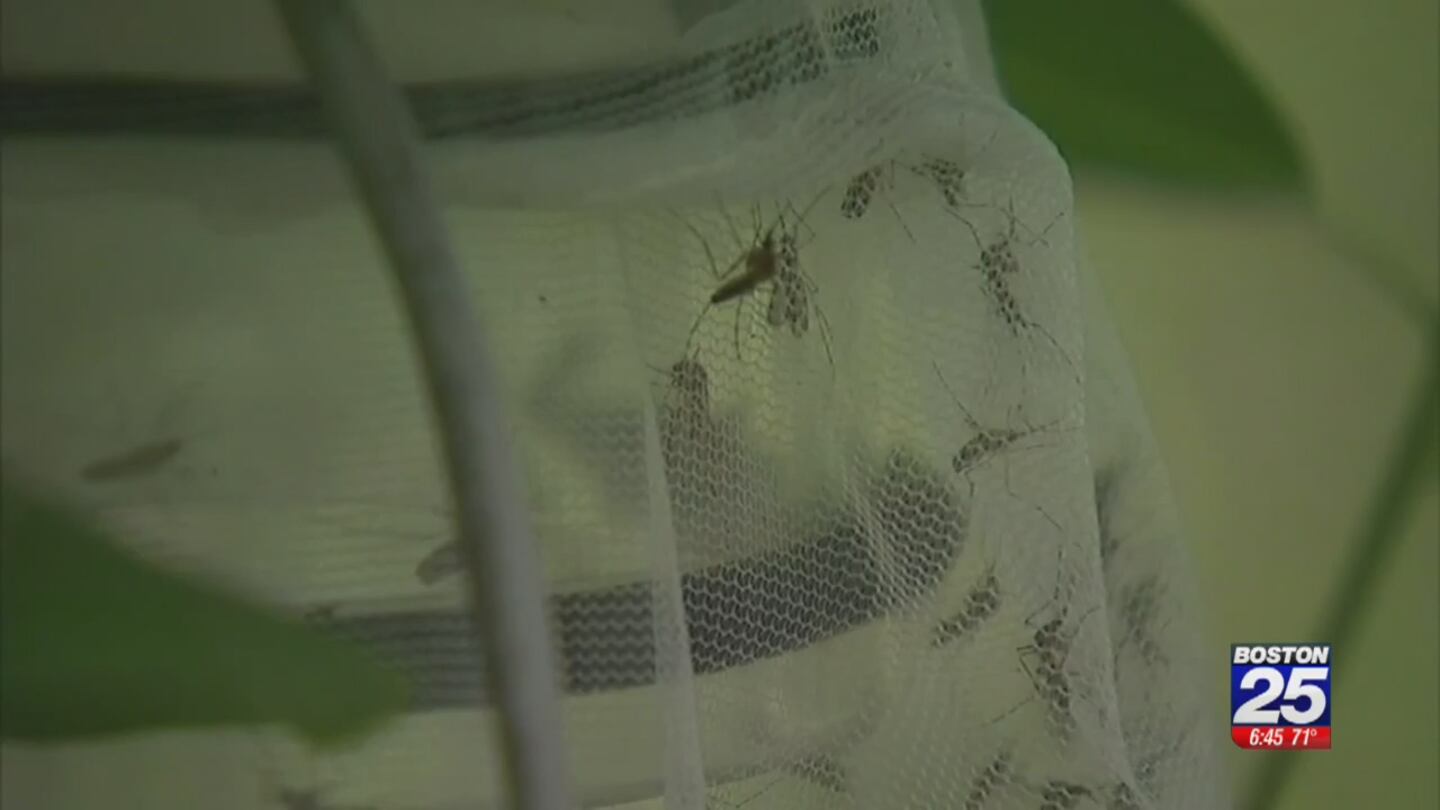BRIDGEWATER, Mass. — The Eastern equine encephalitis virus has been detected in mosquitoes in Bridgewater, town officials said Wednesday.
The news out of Bridgewater comes one week after state officials announced EEE was detected in mosquitoes in Massachusetts for the first time this year.
State public health officials notified Bridgewater town officials that a mosquito collected on July 22 tested positive for EEE, Town Manager Justin Casanova-Davis said in a statement.
No human or animal cases of EEE have been detected in Massachusetts so far this year.
Bridgewater and most of southeastern Massachusetts are currently classified by the state as low risk for EEE and West Nile Virus, Casanova-Davis said.
Town officials are working closely with state public health officials to monitor the situation, he said.
EEE is a rare but serious and potentially fatal disease that can affect people of all ages.
EEE is generally spread to humans through the bite of an infected mosquito. The risk of infection is highest among people younger than 15 or older than 50.
Public health officials shared the following tips to help prevent mosquito bites and the transmission of the virus:
Avoid mosquito bites and be aware of peak mosquito hours. The hours from dusk to dawn are peak biting times for many mosquitoes. Consider rescheduling outdoor activities that occur during the evening, after 6 p.m. or early morning. Otherwise, take extra care to use repellent and protective clothing. Mosquitoes can be active during daylight hours when the temperatures are cool.
Clothing can help reduce mosquito bites. Although it may be difficult to do when it is hot, wearing long sleeves, long pants and socks when outdoors will help keep mosquitoes away from your skin.
Apply insect repellent when you go outdoors. Use a repellent with DEET (N, N-diethyl-m-toluamide), permethrin, picaridin (KBR 3023) or oil of lemon eucalyptus [p-methane 3, 8-diol (PMD)] according to the instructions on the product label. DEET products should not be used on infants younger than 2 months of age and should be used in concentrations of 30 percent or less on older children. Oil of lemon eucalyptus should not be used on children younger than 3 years of age.
Mosquito-proof your Home and drain standing water. Mosquitoes lay their eggs in standing water. Limit the number of places around your home for mosquitoes to breed by either draining or getting rid of items that hold water. Check rain gutters and drains. Empty any unused flowerpots and wading pools, and change water in birdbaths frequently.
Install or repair screens. Some mosquitoes like to come indoors. Keep them outside by having tightly fitted screens on all windows and doors.
Protect your animals. Animal owners should reduce potential mosquito breeding sites on their property by eliminating standing water from containers such as buckets, tires, and wading pools – especially after heavy rains.
Water troughs provide excellent mosquito breeding habitats and should be flushed out at least once a week during the summer months to reduce mosquitoes near paddock areas. Horse owners should keep horses in indoor stalls at night to reduce their risk of exposure to mosquitoes. Owners should also speak with their veterinarian about mosquito repellents approved for use in animals and vaccinations to prevent WNV and EEE.
If an animal is suspected of having West Nile Virus or EEE, owners are required to report to the Department of Agricultural Resources, Division of Animal Health by calling 617-626-1795, and to the Department of Public Health by calling 617- 983-6800.
More information, including all West Nile Virus- and EEE-positive results can be found at this website or by calling the DPH Division of Epidemiology at 617-983-6800.
This is a developing story. Check back for updates as more information becomes available.
Download the FREE Boston 25 News app for breaking news alerts.
Follow Boston 25 News on Facebook and Twitter. | Watch Boston 25 News NOW
©2025 Cox Media Group







